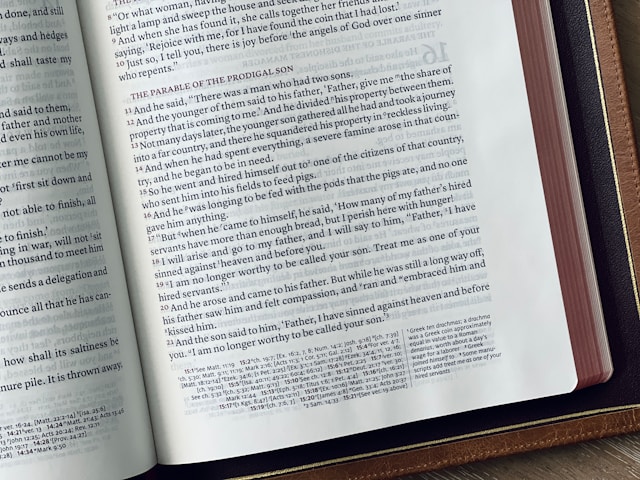"But while he was still a long way off, his father saw him and felt compassion..."

Image by https://unsplash.com/@timwildsmith
I was in the Philippines,
enjoying a meal with my wife, when a group of women and children entered the
restaurant. They were accompanied by two men. One of the men approached us to
say hello, which was quite unusual for the Philippines, where many men tend to
be shy. But this man was different. He had a dignified presence and wore a
white barong. After a brief introduction, he explained that the single parents
and their children were part of his church group, and they were being treated
to this meal by him and his male colleague.
I was deeply moved. Immediately, I thought of James 1:26-27:
"If anyone considers himself religious and yet does not bridle his tongue, he deceives his heart and his religion is worthless. Pure and undefiled religion before our God and Father is this: to care for orphans and widows in their distress…"
Despite my initial affection for this man, I felt a sense of caution. I’ve been in similar situations before experiencing what is often called "love bombing." It's a tactic used to attract people to a religion, but I’ve come to recognize that it can be temporary, often driven by a desire to either convert someone or to gain favor with God. At times, I must separate this kind of religious love from the genuine love Jesus spoke of.
This distinction reminds me of the Parable of the Prodigal Son. In the story, the son makes reckless decisions, squandering his inheritance on a wild, self-indulgent life. Eventually, he realizes the mess he's made of his life and decides to return home.
I've often wondered what must have been going through his mind as he walked that lonely road back home. He must have known his father well because many people wouldn’t dare return after such disgrace. But this father was different. In the story, as the father is working in the fields, we read:
"And he arose and came to his father. But while he was still a long way off, his father saw him and felt compassion and ran and embraced him and kissed him. The son said to him, 'Father, I have sinned against heaven and before you. I am no longer worthy to be called your son.' But the father said to his servants, 'Bring quickly the best robe and put it on him, and put a ring on his hand and shoes on his feet. And bring the fattened calf and kill it, and let us eat and celebrate. For this my son was dead and is alive again; he was lost and is found.' And they began to celebrate." (Luke 15, BSB).
The Figurative Seat of Repentance
Many years ago, I visited an ancient church in Scotland. Up at the front and facing the audience was a seat of repentance where the sinner would sit and be humiliated in front of the congregation. But what strikes me most about Luke's passage is how immediate the repentance and forgiveness were. There was no waiting period, no sitting at the back of the congregation awaiting forgiveness, and no interview with the pastors or leaders to assess repentance. The father’s love was unconditional, and the son was forgiven before the father even knew the full state of his heart.
There are many young people and not so young who have followed similar pathways but would never return to their former religious organisations due to the unmerciful hoops they would have to jump through in order to be accepted.
Have you sinned, then go and speak to God, asking forgiveness.
The Father in the Prodigal son story is the kind of love the father—and Jesus—manifested.
Writing: © 2024 Jim McCrory